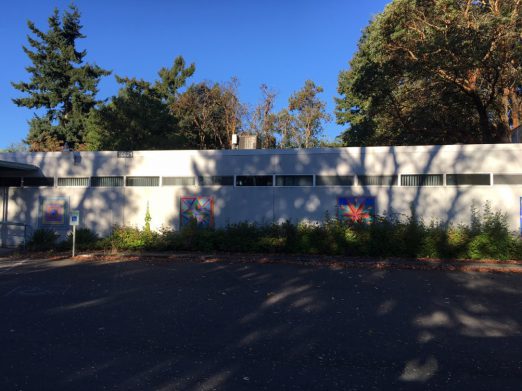By Tracy Record
White Center Now editor
This month’s North Highline Unincorporated Area Council meeting included discussions of two separate and very different plans to house people experiencing homelessness. Here are last night’s highlights:
SHELTER UPDATE: As reported here Wednesday, the King County shelter plan for the ex-Public Health building at 8th SW/SW 108th has changed, after weeks of work with a community task force. Mark Ellerbrook from King County and Marty Hartman from Mary’s Place came to talk about the new “family shelter” plan.
“We’ve got some steps to go through first,” Ellerbrook said, especially regarding revising the permit application “as quickly as we can … so we can make any chances in the building that we need to make.” He addressed a topic that we asked him about yesterday; “our need for shelter for single adults has not gone down,” but, “if you look at the Highline School District specifically, at least 74 homeless students – living in cars or in a tent under a bridge, and trying to go to school, make a go of it … from about 36 families.” That number is dynamic and changes, he noted. He reiterated that they plan a “large community meeting” in January.
Hartman showed a video about her organization and said its dream has been that no child would have to sleep unsheltered, but they’re not there yet, and hoping to partner in this community “to bring those children inside.”
She said they serve families in a variety of configurations, even at some of their shelters, families with pets. They have 400 beds across King County in nighttime shelters, as well as day centers, in downtown and Aurora/130th (their “family center,” open to all of their shelter guests every day). The families are “in community,” sitting around tables together, in Kids Club together, “supporting each other,” she said. She said they partner with dozens of nonprofits to offer help, assistance, resources. “Our goal is that you will not spend all day looking for 10 diapers,” for example. “Most importantly, we are able to help intervene in the trauma that is going on now – it can take six months for families to get beds in shelter, and that is unacceptable to us.” They have counselors, they ensure kids are enrolled in school, and they try to alleviate crises. “There’s nothing too horrible, too yucky, too bad that’s happened to you that we can’t talk about. … The goal is, we’re going to move you in and out of Mary’s Place as soon as possible.” But they will first be checking on financial stability, for example. A third of the people they serve are refugees and immigrants, who don’t get assistance for as long as possible. They have employers who come in and even hire on site. They do background checks, sex-offender checks, screen out for Class A felonies, etc. She says they’re all about healing and help. “This is solvable. 650 families. The beds that would be available at this shelter would be life-saving.” She said all but 10 percent of their current funding is privately provided. She said they are always looking for “that next building” to use until somebody redevelops it. And she spoke about the importance of intervening with children and families.
One attendee who had been an outspoken critic of the original shelter plan, Joseph Benavides, voiced some continuing concerns including the intersection by 8th/108th not being sufficiently configured. “I love the plan, I love everything about it” otherwise, he said. Ellerbrook said they are talking with King County Roads about safety issues there.
Hartman reiterated that they have just come into the process and expect to be assisting about 25 people for starters.
And they are continuing to work on practicalities such as laundry and hygiene, just getting some folks inside this winter, and then continuing to work on the building. Mary’s Place staff will be there 24/7 and will have a round-the-clock on-call number. “We’re not perfect neighbors all the time … sometimes an aid car will pull up … six children were admitted to the hospital this week with respiratory problems … this week a lady’s water broke right in the lobby.”
But: “In every neighborhood we’ve been in, we’ve made the neighborhood better,” she declared. “Our parents are so big on keeping things safe for their kids … there’s nothing like a momma bear.” If there is something bothering neighbors, Mary’s Place wants to know, she said, adding that their curfew is 8:30 pm, lights out by 9, every day.
Ellenbrook said there will be a three-way agreement “between the county, Mary’s Place, and the community.” A community-work-group meeting “the week of the 15th” will work on it further. There also, Ellerbrook added, will be quarterly community meetings to talk about how things are going, what’s needed, and more.
“It’s really been a remarkable process,”said NHUAC vice president Barbara Dobkin, considering, as she pointed out, “nobody’s yelling here tonight” – in comparison to the emotions that ran high during the community meeting September 15th. “This is just a wonderful compromise that will work.” Benavides added. “The wholesomeness of this whole approach is what this community is all about.”
“I think they really listened,” NHUAC president Liz Giba said about the county reps who were at last month’s meeting (WCN coverage here), including department director Adrienne Quinn.
The discussion concluded with applause.
SEATTLE’S MYERS WAY ENCAMPMENT PLAN: This was discussed at two points in the meeting. Early on, during the community-announcements section, Gunner Scott of the Highland Park Action Committee community council spoke about the Seattle city announcement earlier in the day of a sanctioned encampment at the city-owned Myers Way Parcels (here’s the story on our partner site West Seattle Blog).
Scott said, “It’s probably a done deal but what we can do – working together- is probably, negotiate terms.” He said that City Councilmember Lisa Herbold has been invited to HPAC’s next meeting in January to talk about this as well as other things. He said that the city told him that Camp Second Chance – which has been at the site, without authorization, since summer – would likely be asked to stay as a self-managed encampment, possibly with some “religious organizations” that they’ve been working with. President Giba said that Seattle’s director of homelessness George Scarola told her that they believe about 20 people are living at CSC right now; the city’s plan for the site could more than double that. Later in the meeting, she said that she had spoken to him to ensure that NH would be included in discussions with community leaders. And she said he told her the city would be reaching out to some of the people living unsheltered along Myers Way, but not in the camp, to see if they would join it.
CRIME UPDATES: King County Sheriff’s Office storefront Deputy Bill Kennamer said “Car thefts are really high,” but almost everything else is down. “It’s unusual that you’d have this cluster of this many auto thefts – they’re usually taken as transportation. … Burglaries are really down a lot,” he added.
The local KCSO storefront is now in its new HQ at Steve Cox Memorial Park, announced months ago.
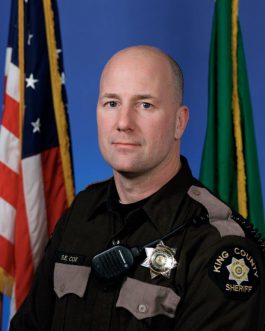 REMEMBERING DEPUTY COX: Giba noted that today (the day after the meeting) is the 10th anniversary of Deputy Cox’s murder on December 2, 2006. “He was a deputy, he was a leader, he was a good friend … he drew people in and tried to get you involved … he decided early on that I needed some mentoring, and he spent some hours trying to accomplish that.” He was also president of NHUAC at the time. She said she tried to get him to take that day off so he could go speak to the Seattle City Council, to tell them to “leave us alone” …but he said he had to work, and told them “you guys can handle it.” She observed, “I feel like that was the message he left to the whole community – ‘you guys can handle it’ – I feel like that’s what we have done.” One example, she said, was the way the shelter had worked out. “He loved kids, he was a new dad, I feel somewhere he is smiling.”
REMEMBERING DEPUTY COX: Giba noted that today (the day after the meeting) is the 10th anniversary of Deputy Cox’s murder on December 2, 2006. “He was a deputy, he was a leader, he was a good friend … he drew people in and tried to get you involved … he decided early on that I needed some mentoring, and he spent some hours trying to accomplish that.” He was also president of NHUAC at the time. She said she tried to get him to take that day off so he could go speak to the Seattle City Council, to tell them to “leave us alone” …but he said he had to work, and told them “you guys can handle it.” She observed, “I feel like that was the message he left to the whole community – ‘you guys can handle it’ – I feel like that’s what we have done.” One example, she said, was the way the shelter had worked out. “He loved kids, he was a new dad, I feel somewhere he is smiling.”
Others’ memories:
“He was an excellent human being.”
“He was a kind of person who just does things. He loved the community.”
“There are some really strong people lost in this community over the years … it’s really up to all of us to continue his legacy. .. We’re a community, we have to stick together, it’s only together that we can work on these issues … if we’re together, we’re powerful.”
The King County Sheriff’s Office will pay tribute to Deputy Cox and 15 others who died in the line of duty in the department’s history at a plaque dedication downtown this morning. WCN will be there.
ANNOUNCEMENTS: Pat Price announced a survey that the King County Library System is conducting (we will add the link when we get it) … Bob Price announced a fundraising dinner Friday (December 9th) 5:30 pm at the White Center Eagles for Jubilee Days….Giba announced Rudy Garza‘s art exhibit tonight (Friday), 5-7 pm, at Dubsea Coffee in Greenbridge … Mark Johnston said King County is due out with its first “marijuana report” on potential retail-store sites soon….White Center Kiwanis and New Start Key Club will have the annual baked-potato dinner January 12th at the school, $15 for one ticket, $25 for two, $30 for a family. …
NHUAC BOARD RESIGNATIONS: Elizabeth Devine says work demands will require her to leave the NHUAC board. Also, since the last meeting, Dominic Barrera has resigned. So the board is looking for prospective new members – contact info is on the NHUAC website.
SUBSTANCE-ABUSE SURVEY: Former NHUAC board member Elizabeth Gordon brought a survey that’s ready for more community members’ participation. She’s representing a coalition that got a grant they’ll be working on next year, focusing on preventing substance abuse among middle-schoolers. She also had warm words for the community youth who had spoken in favor of a family homeless shelter replacing the county’s original idea for the Public Health building. The grant with which she and the coalition is working is from revenue generated by marijuana businesses in the area. We’ve featured the survey before – go here for the links if you haven’t answered it yet.
The North Highline Unincorporated Area Council meets on the first Thursday of most months, 7 pm, at North Highline Fire District HQ – watch northhighlineuac.org for updates between meetings.
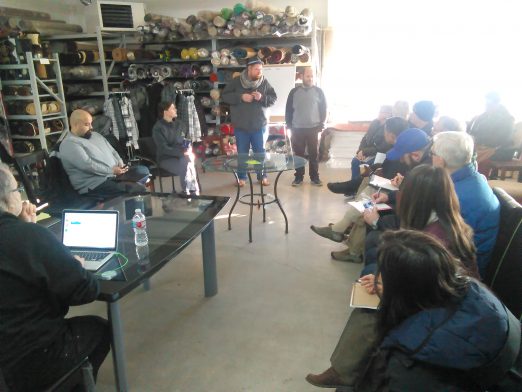
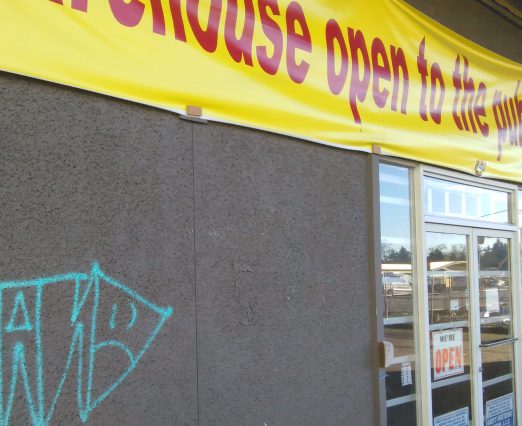
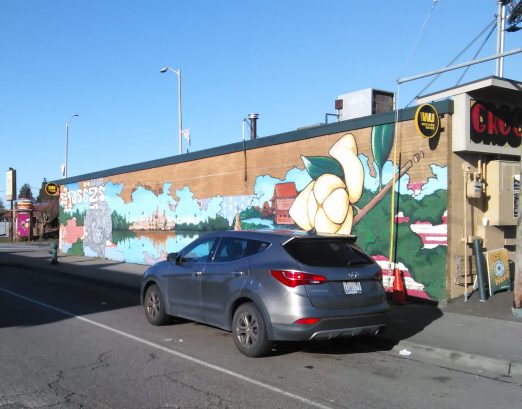

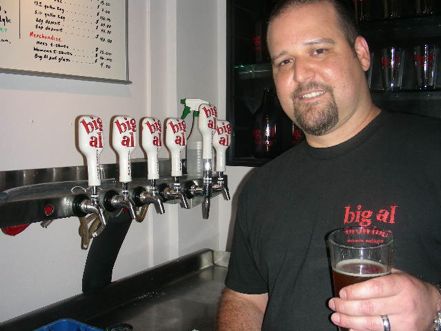
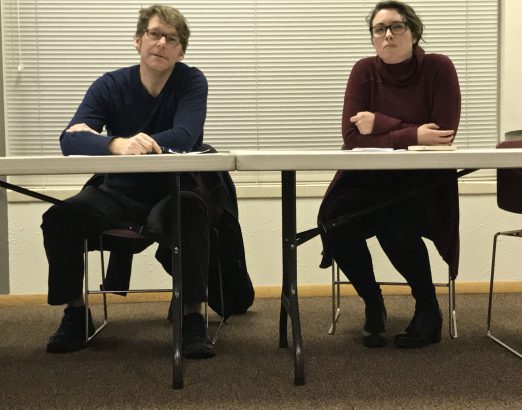
 I have lived in White Center for 35 years; raised my children here, forged lifelong friendships, built partnerships, and helped to grow the White Center Food Bank for the past twelve years. It has been both my professional and personal passion to help support the most vulnerable in our community.
I have lived in White Center for 35 years; raised my children here, forged lifelong friendships, built partnerships, and helped to grow the White Center Food Bank for the past twelve years. It has been both my professional and personal passion to help support the most vulnerable in our community.

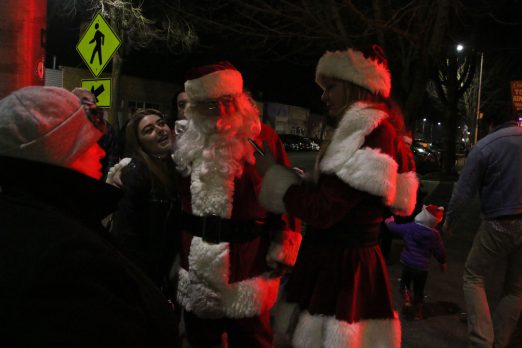
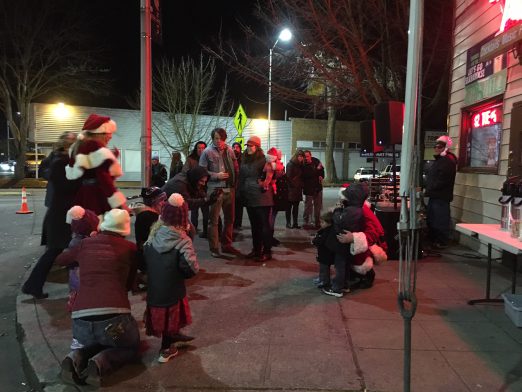
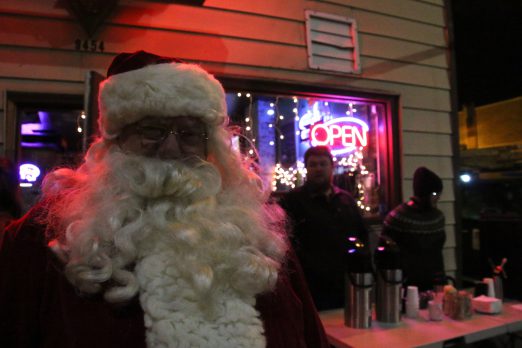
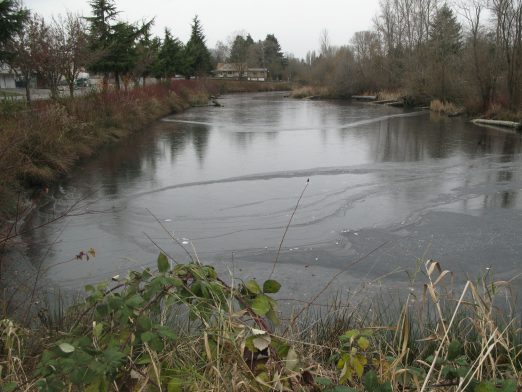
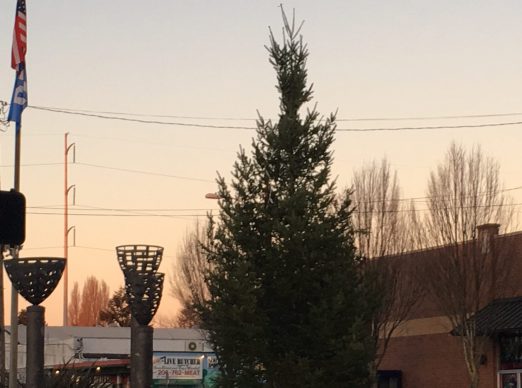

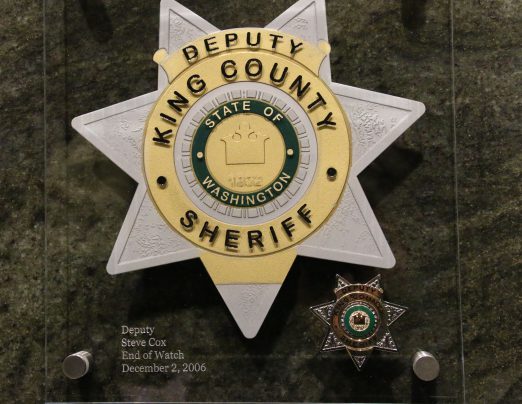
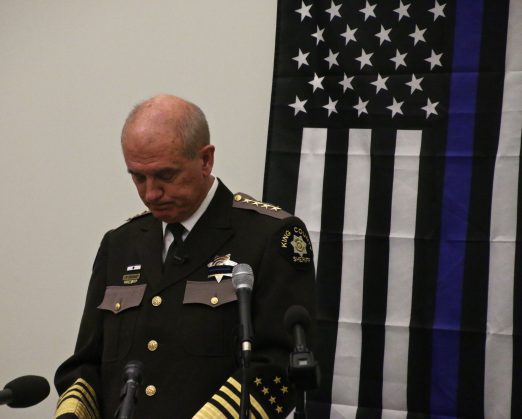
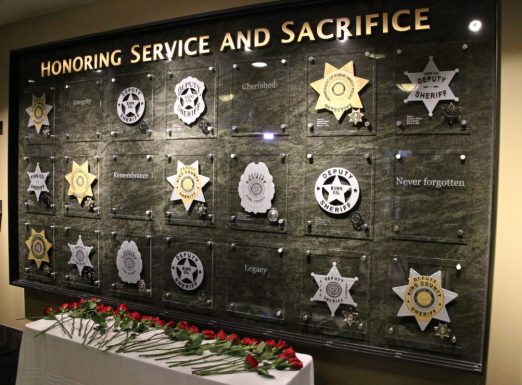
 REMEMBERING DEPUTY COX: Giba noted that today (the day after the meeting) is the 10th anniversary of
REMEMBERING DEPUTY COX: Giba noted that today (the day after the meeting) is the 10th anniversary of